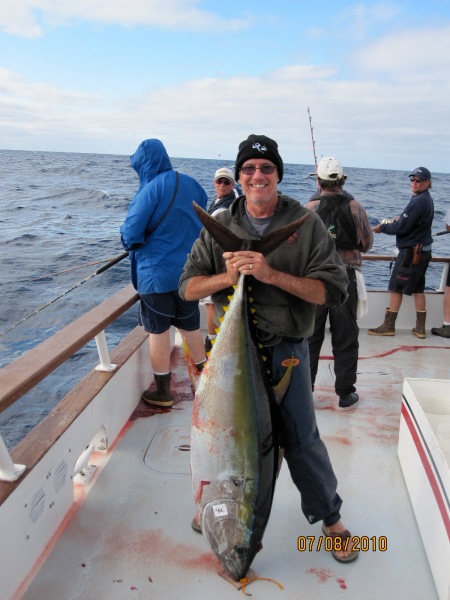Have you ever put together a relational biography? A relational biography describes the special people that God has used in your life over the years to get you where you are today. Try it. You’ll be amazed to discover just how much you owe to the influence of others over the years. As it turns out, I owe them just about everything! What follows is a list of but a few of my creditors, past and present.
NATURAL FAMILY
For better or worse, our parents, more than anyone else, set the trajectory for our lives. In my case, it was for better. I was an only child of two older parents (my Jewish father had been married and divorced three times to the same Jewish woman before he married my Gentile mother at 50 years of age!). Mom and Dad filled our little home with love and security. My father died when I was 16 years old, but he had stopped working eight years earlier, and I had more one-on-one time with my dad during those eight years than most children have in a lifetime. My parents left me a priceless legacy of goal-orientation, personal responsibility, and overall optimism about life. I never once saw my parents wallow in self-pity or play the blame-game, in spite of periods of deep suffering over years.
At the practical level my folks left me another legacy: a little beach cottage in Hermosa Beach, California. Joann and I have lived there since 1984, raising both daughters in a 750 square-foot house with one bathroom. The economics of inheriting a house made so many things possible: (a) Joann remained a stay-at-home mom on a pastor’s salary, (b) we had money for date-nights and romantic getaways which have, in turn, made our marriage better, and (c) I was able to pursue a terminal degree in Christian Origins at UCLA that ultimately set me on a life-long vocational trajectory.
And then there are Joann and the girls. I would truly be a gutter rat without their influence in my life. God really does use the women in our lives to socialize us guys to become productive human beings! My daughters increasingly speak into my life as young adults, but, of course, most in the influence has (hopefully!) gone in the other direction—from me to them—over the years. Not so with Joann, my wife of thirty years. Joann is the person who has made me what I am today in so very many ways. I’ll try to limit myself to two examples here. The first is practical in nature.
Joann simply has no desire for ‘things’—a fancy house, clothes, cars, jewelry—that other Christian women seem to think are so indispensable to their comfort and to their social identity. Joann buys her clothes at Ross and the like, and she is completely content to drive around town in our old 1998 Explorer. This has been utterly liberating for me economically, since I have never felt any pressure from Joann to sell my soul (and our marriage!) into bondage to the banal trivialities of our consumer culture (fishing tackle excepted, of course!).
Secondly, and most importantly, Joann believes in me and my gifts, and she has supported me in my educational and vocational adventures more than anyone else on the planet. Her encouragement along the way has turned moments of self-doubt into hope and times of victory into family celebrations. Her love has carried me through the years like a steady, warm breeze in the sails of a ship moving through waters both calm and turbulent. Joann is simply my best friend in the world. And what a great pastor’s wife she is! Those who know me well will tell you that I am not a people-person. [Pretty ironic for a guy whose academic specialty is early Christian community!] Joann, on the other hand, touches people one-on-one in ways that are simply amazing. Her relational gifts have freed me up, in turn, to use my teaching gifts as God intended them to be used among His people.
CHURCH FAMILY
Church folks have also been a determining factor in my life and ministry. A music minister named Paul Isensee challenged me to get involved in ministry (1978). A whole church (Community Baptist) affirmed my gifts along the way and helped to put me through seminary and a doctoral program (1980-96). John Hutchison provided a model of what pastoral ministry is all about (1986-90). Duke Winser invited me to join him as a co-pastor at Oceanside Christian Fellowship (1996). Margy Emmons has opened my heart to worship over the years in ways it had never been opened before. OCF’s elders (Brandon, Carlos, Dan, Denny, Ed, & Stan) continue to provide the most relationally healthy leadership environment imaginable for a minister of the Gospel. And my fellow-elders at OCF are some of my best Christian buddies, as well.
TEACHERS
I also remain deeply in debt to mentors and colleagues in academia. A piano teacher (Michael Sellers) told me to get back and finish what I’d started, after I dropped out of college for a season. A Greek teacher (Bill Welty) chased me out of an unaccredited seminary (Grace Graduate School, Long Beach) to an accredited one (Talbot), because he saw in me an aptitude for biblical languages. Don McDougall, a Greek professor at Talbot, modeled what was to be my own bivocational calling to both the church and the academy. Scott Bartchy, my Doctorvater at UCLA, opened my mind to a whole new approach to the Scriptures, and he has become a dear friend over the years, as well.
COLLEAGUES
More recent ‘creditors,’ filling the pages of my relational biography on the vocational side, include the likes of Drs. Dennis Dirks, Mike Wilkins, and Clint Arnold, my supervisors at Talbot. These guys have conspired to create what is truly a near-ideal work environment. Dennis does all the dirty work (administration), leaving faculty primarily to focus on the fun stuff (research & teaching). Clint kindly schedules all my courses on two days each week, so that I can commute less and have more time for writing and for church ministry.
And Mike? Well, Mike and I are on different schedules at Talbot, and we live 50+ miles apart, so we aren’t real close friends. But the debt I owe to Mike Wilkins for my quality of life and the joy I get from teaching at Talbot is a profound one. Mike is Talbot’s ‘gate-keeper’ where faculty hiring is concerned. That means that the relational atmosphere that faculty experience among their peers at the school of theology is, in many ways, ultimately Mike’s doing. Those in the know will tell you that Mike has a nose for arrogance. Mike flat out will not hire an applicant who is ‘full of himself,’ no matter what the guy’s CV looks like. The result? Talbot professors enjoy an amazingly supportive collegial atmosphere that is a genuine anomaly in higher education. Paul says ‘knowledge puffs up, but love builds up’ (1 Cor 8:1). Because of Mike’s careful gate-keeping, we have a whole lot of the latter—and almost none of the former—at Talbot School of Theology.
CONCLUSION: There, in a nutshell, is a brief overview of my relational biography. And, once again, I am brought to my knees in gratitude for the people that God has brought my way over the years. Hey, maybe I’m a ‘people-person,’ after all!
The moral of the story is that we are all people-persons when it comes to the debt of gratitude we owe to others for who we are today. None of us can say, ‘I am a self-made man.’ God has not set up His universe to run like that. ‘Where is boasting? It is excluded!’ All is of grace, even (especially!) the people God has placed in our lives.
Write your own relational biography. You’ll find it to be a humbling and joyous experience. Finally: May God help us to influence others in the ways others have influenced us!



